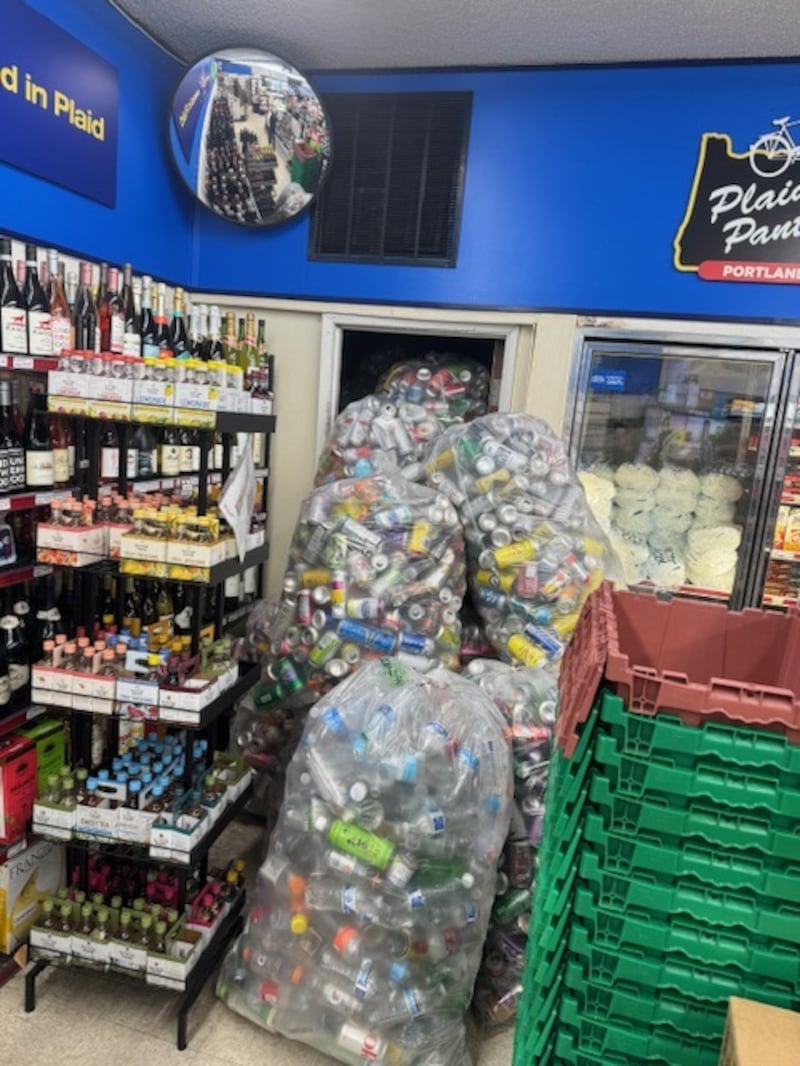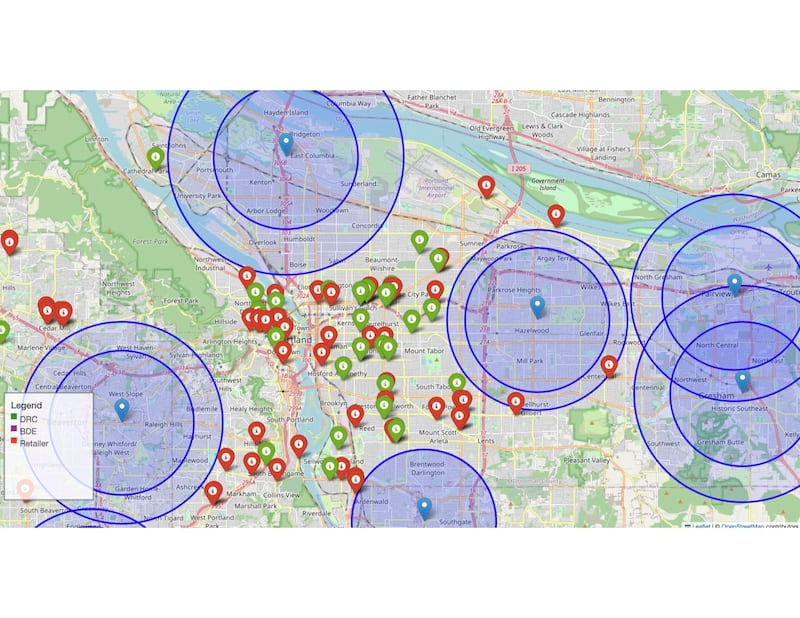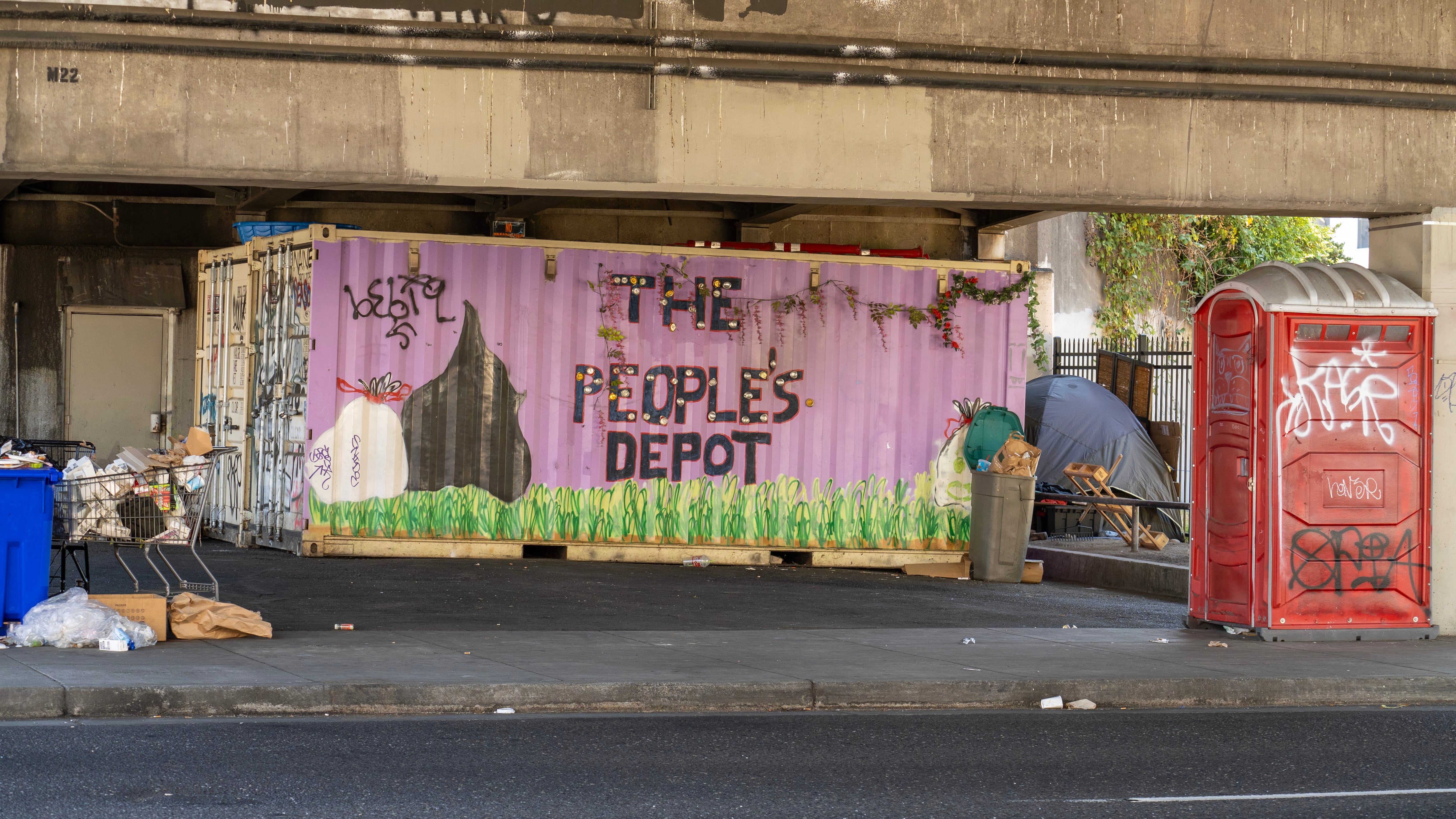If you wander into a Plaid Pantry in Portland’s central city, there’s a decent chance you’ll see huge bags of empty cans and bottles spilling out of the backroom because the volume of returns regularly overwhelms storage capacity.

Outside Plaid Pantry and other convenience stores that redeem empties—as well as downtown groceries, such as Safeway and Fred Meyer—you’ll sometimes see a thriving illicit market, as canners convert their cans and bottles into fentanyl.
Earlier this year, WW reported on the concern of many downtown residents and businesses that the iconic Bottle Bill, part of Oregon’s identity since its passage in 1971, has contributed to the deterioration of the city’s street life as canners rummage through trash cans and recycling bins, then buy and use drugs outside stores (“House of Cans,” Feb. 7).
In response, Gov. Tina Kotek suspended the legal requirement that two stores—the Safeway at 1030 SW Jefferson St. and the nearby Plaid Pantry at 1305 SW 11th Ave.—redeem empties.
That respite lasted only a couple of months. After the suspension was lifted, neighbors say, many of the problems returned. Now, the Northwest Grocery Association, which represents Safeway and other downtown grocers, is seeking a more permanent fix—by way of the Oregon Legislature. Convenience stores also want relief.
“Plaid Pantry and similar small stores are required to collect enormous numbers of bottles and cans in the middle of the night when other options are not readily available,” Plaid Pantry CEO Jonathan Polonsky says. “Smaller stores do not have the physical space for all the bottles and cans now being returned. A few minor changes to the Bottle Bill could improve public safety and the operation of neighborhood stores.”
THE HOLE
As recently as 2010, grocery and convenience stores redeemed nearly all empties. But last year, 80% of the more than 2 billion containers returned for deposit went instead to BottleDrop redemption centers run by the Oregon Beverage Recycling Cooperative.
State law allows retailers within a specified distance from a redemption center to accept fewer—or, in some cases, no—cans and bottles. As the map below shows, however, the grocery and convenience stores in the central city are too far from redemption centers to benefit—the city looks like a doughnut, and downtown is the hole. That means downtown stores have to take back way more containers than they’d like.

THE FIX
At a meeting of retailers, business leaders and elected officials last week, the Northwest Grocery Association circulated proposed legislation for 2025 that would amend the Bottle Bill so that a nonprofit, working in concert with the recycling co-op, could act as a centralized redemption center, taking the pressure off downtown stores, whose redemption requirements would decrease.
There already is one such nonprofit working outside state parameters: the People’s Depot, a DIY redemption center on track to take back 10 million containers this year. Part of last week’s conversation centered on the possibility of greatly expanding the Depot, which now operates part time in a cubbyhole under the Morrison Bridge.
Grocery association CEO Amanda Dalton says her members would pony up for a more permanent, full-time redemption center in the central city. “Our No. 1 concern is customer and employee safety,” Dalton says. “New operational updates and safety reforms of Oregon’s Bottle Bill will improve convenience, increase redemption rates, and provide safety for grocery customers and employees, and the neighborhoods that they serve.” Dalton’s bill would also make it easier for the governor to suspend redemptions when necessary.
WHAT DO LEADERS SAY?
“I’m supportive of looking at ways to modernize the Bottle Bill but I don’t want to reduce access,” says state Sen. Janeen Sollman (D-Hillsboro), who chairs the Senate Committee on Energy and Environment. Gov. Tina Kotek expressed similar sentiments.
Mayor Ted Wheeler is less equivocal: “It’s important to me in my final weeks in office to convene stakeholders to address ongoing safety issues related to bottle and can recycling in Portland, especially downtown. While I can’t predict the exact outcome, I will continue to advocate for a full suspension of bottle and can recycling facilities in Portland until negative externalities from these sites can be meaningfully addressed.”

